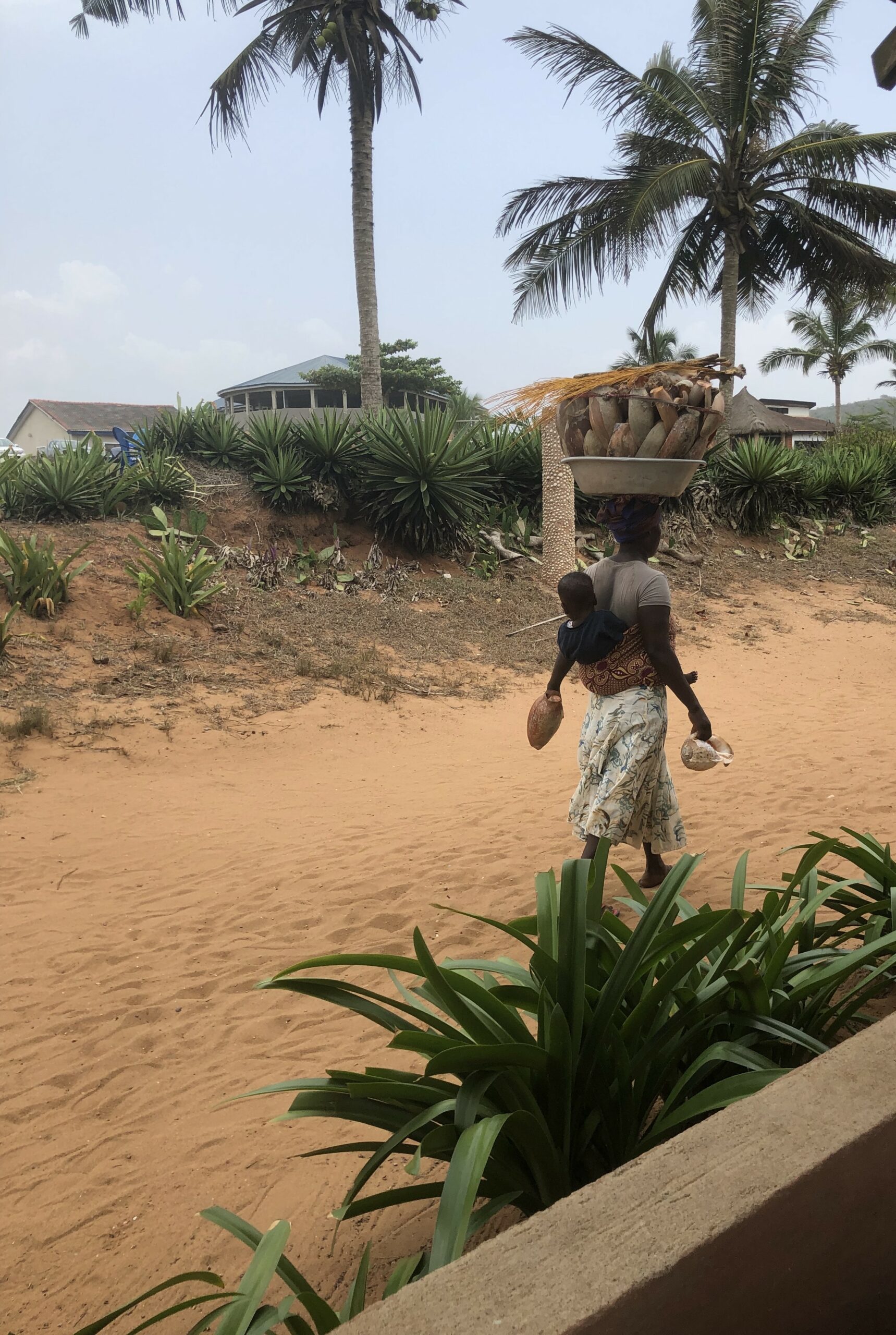“At the next table in a cafe, two friends were sitting, one complained to the other that for the last 5 years she could not get pregnant. The last attempt is to go to America and do IVF. Then, she pulled out a keychain in the shape of a doll from the key holder and gave it to her friend and said, “Take care of it. Take care of her as if she were your child.”
Africa is a continent full of legends, mysteries, and symbolic meanings. The Ashanti doll from from Ghana is one of many unique and prevailing symbols. This doll represents fertility and good luck and is even used by young girls to prepare for motherhood.
The fertility doll which originates from Ghana but can be found in many other African countries in western Africa, is given to a tribal woman who is wanting to become pregnant.
Women who are pregnant or wish to be pregnant remind themselves of the Ashanti ideal of beauty carrying Akuaba in the waistband of their skirts.
Legend has it that the Akuaba fertility doll was traditionally worn by a woman on her back in hopes of conceiving a child or that the current child would be born healthy. In some villages, the priest gives the doll to the young woman after the rituals. Most often, the mother who has used the abundance doll passes it on to her daughter. In preparation for motherhood, she will wash the doll, carry it on her back, lay it down, dress it and even “feed it.”

Symbolism.
The round head of the Ashanti doll is a symbol of the female womb. Some also consider it to be a symbol of the moon goddess. A high forehead is a symbol of beauty, and the neck ring shows folds caused by fat, indicating health. The body of the fertility doll is shaped like a cross and is like the Kamit symbol known as Djed, which according to Egyptian legend is the basis of the god Ausar. In ancient spiritual teachings, Ausar has great power because his emotions and thoughts are stable and unshakable.
For centuries, dolls have stood the test of time. While in Western culture these dolls have become a symbol of good luck and a piece of handcrafted African art, in Africa these dolls have held a very important place for many centuries.
“Six months later, she came to the coffee shop with a small belly, enjoying her tea and delicious cheesecake”.










Una risposta
What a lovely story. I love traditions that pass from one generation to another. I think that believe in something help us make it happen. I think that’s our brain works. and the heart too.